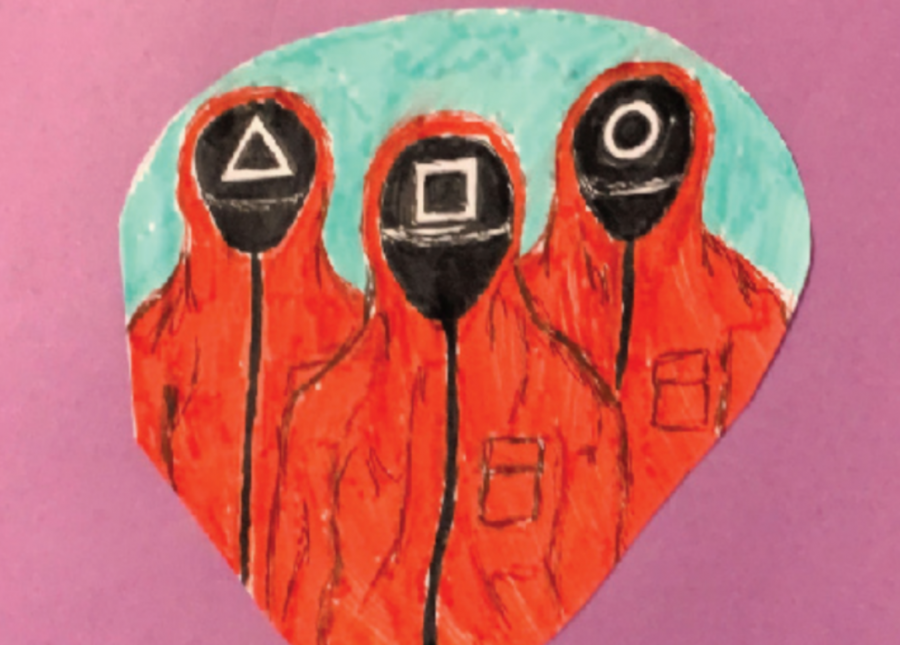“Squid Game”: A Spotlight of Korean Culture?
November 28, 2021
Rating: 5/5 Falcons
Watched by 142 million viewers in its first month, Netflix’s Squid Game has broken records as the platform’s most watched series. Set in South Korea, the show follows the story of a group of hundreds, desperately in debt, who agree to participate in a series of seemingly innocent childhood games for the chance to win a large sum of money. The catch? If a player loses the game, they are killed.
The childhood games are simple, nostalgic games that the players grew up with. In an interview with the BBC, Squid Game director Hwang Dong-hyuk explained, “People are attracted by the irony that hopeless grownups risk their lives to win a kid’s game.” In other words, it is specifically this surprising juxtaposition of an innocent children’s game and the violent deaths of players that captures viewers’ attention.
Critics have also attributed the show’s success to its focus on marginalized members of society who come together through their monetary troubles. According to the Associated Press, South Korea’s household debt peaks at over $1.5 trillion. The show is a cinematic masterpiece, not only because of its thrilling soundtrack and its original setting but also because of its well thought-out and addictive screenplay. Getting emotionally attached to the characters and rooting for them through different trials makes the show that much more binge-worthy.
Seong Gi-hun, a gambling addict, joins the game out of desperation to make ends meet. Cho Sang-woo, Gi-hun’s old childhood’s friend, is fleeing the police who are threatening to take away his property following a series of failed economic decisions. Kang Sae-byeok, a North Korean refugee, needs the money to get her family out of North Korea. Similarly, Tripathi Anupam joined the game to get a large enough sum of money to return to his home country, Pakistan.
The show is as much an emotional trigger as a criticism of Korean culture. Chang Woo, a volunteer at the Korean Cultural Center of Chicago, sees the show as a success because “[it] represents the inequality, discrimination, and so much more in South Korea now,” he told USA Today. The country’s mistreatment of migrant workers and the desperate conditions of North Korean refugees
are current themes in South Korea, and reflected in Squid Game. This social relevance has placed the show in another cycle of the Korean wave (K-wave), a surge of popularity of South Korean content characterized by the Oscar-winning film Parasite, and the music group BTS.
While seemingly a new phenomenon, the Korean wave has been in the making for about 30 years. Facing a financial crisis in the late 20th century, South Korea launched aggressive “soft power” campaigns easing up on their media censorship. Since the early 2000s, there has been a projected increased consumption of Korean pop culture. As a result, the widening economic inequality in South Korea can be projected onto the show. While most watch the show for its thrilling suspense, intricate plot, or for its actors, the show is much more than a cinematic hit; it’s a call to action.
This piece also appears in our November 2021 print edition.










